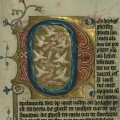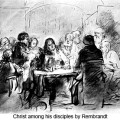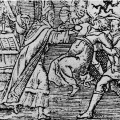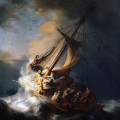Peter’s Confession about Jesus
18 Once when Jesus was praying in solitude, and the disciples were with him, he asked them, “Who do the crowds say that I am?”
19 They said in reply, “John the Baptist; others, Elijah; still others, ‘One of the ancient prophets has arisen.’”
20 Then he said to them, “But who do you say that I am?” Peter said in reply, “The Messiah of God.”
21 He rebuked them and directed them not to tell this to anyone.
As we’ve said before there are many parallels between the Gospel according to Luke and the Gospel according to Matthew. The account in Matthew provides details that go beyond what we have here in Luke. I’m not going to reflect on the Matthew text now … we’ll address that when we get to it. However I invite you to read it for yourself if you’re interested. It can be found at Matthew 16:13-20. If you do read it, pay attention to the differences and then take it to prayer. Reflect on the question “why would Luke’s account of this event be different than Matthews?”
That being said, my brief reflection for this reading focuses on prayer. Recall that in the reflection on The Mission of the Twelve (Luke 6:12-16) we noted that the word used for prayer more accurately means an exchange of wishes or ideas. Here again, the concept of exchange is essential. And what really captures my attention today is the exchange that occurs between Jesus and His disciples. I cannot let it go unnoticed that Jesus, who is God, began this exchange that gets His disciples to reflect more deeply on His identity.
It’s easy for us to think that we’re always the ones that begin the exchange with God because we stop and pray. But we should consider that sometimes God will begin the exchange and when he does, He invites us to pray. When this happens we should recognize this as a special moment of grace and give Him our full attention.
Our prayerful response to this reading can be to ask God for a greater appreciation of prayer.
Related PostsScripture texts in this work are taken from the New American Bible, revised edition© 2010, 1991, 1986, 1970 Confraternity of Christian Doctrine, Washington, D.C. and are used by permission of the copyright owner. All Rights Reserved. No part of the New American Bible may be reproduced in any form without permission in writing from the copyright owner.




